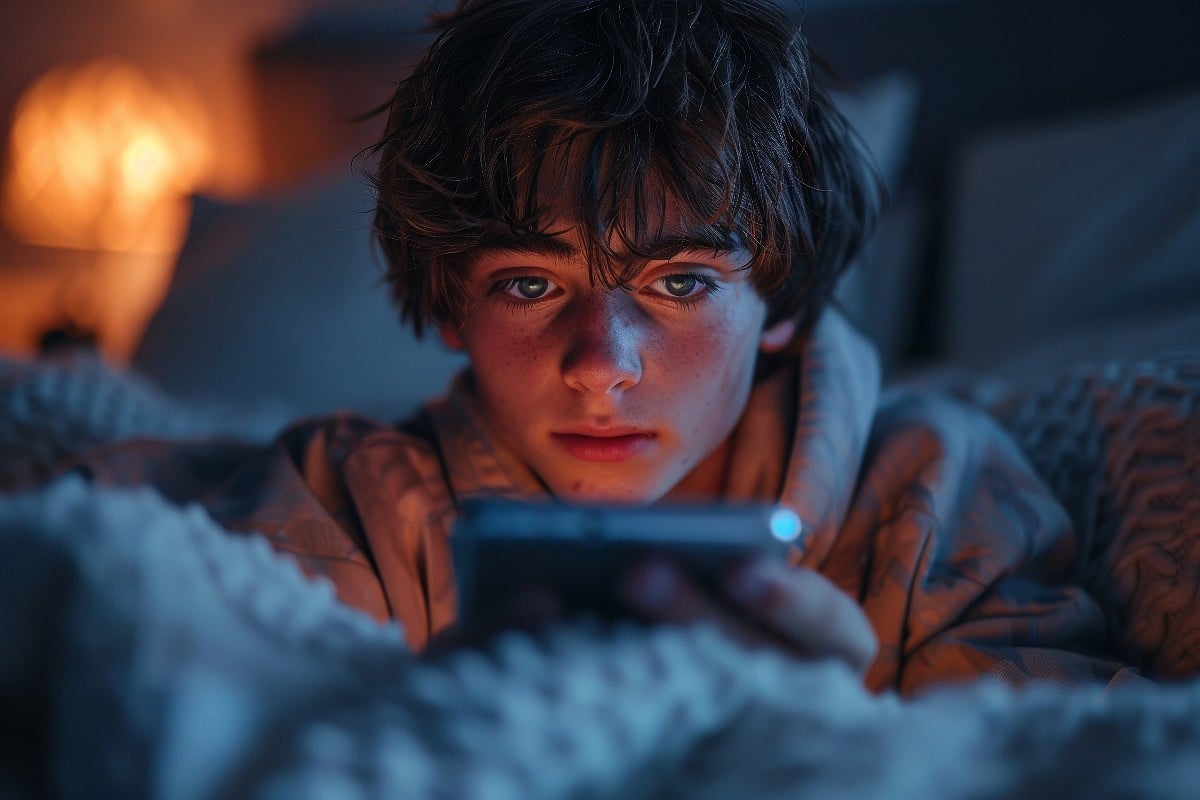Get Healthy!

- Dennis Thompson
- Posted July 26, 2024
Screens, Tweens and Sleep: Study Uncovers Tips for Better Rest
Turning off smartphones is an important step in making sure tweens get the sleep they need, a new study says.
Leaving a phone ringer on is associated with a 25% higher risk of sleep disturbance among tweens ages 11 and 12, according to a new report published July 22 in the Journal of Adolescent Health.
What’s more, 16% of tweens said that within the past week they’d been awakened by a phone call, text message or e-mail that came in while they slumbered.
Even turning notifications to silent or vibrate was associated with less sleep than turning a phone off completely, researchers found.
“Our research found that leaving notifications on, even in silent mode, leads to less sleep compared to turning the phone off completely or keeping it outside the bedroom,†said lead researcher Dr. Jason Nagata, an associate professor of pediatrics at the University of California, San Francisco.
And if a kid wakes in the night, they’re liable to stay up late twiddling with their phone. Nearly 1 in 5 kids (19%) reported using their phone or another device if they woke up overnight.
“Adolescents can be extremely sensitive to phone notifications, often waking up instantly when they hear their phone,†Nagata said. “Even if a phone is on silent or vibrate, adolescents may still check it overnight. Once they start reading or responding to messages, they can become more alert and activated.â€
For the study, researchers analyzed data from nearly 9,400 kids ages 11 and 12 participating in a long-term study of brain development and child health in the United States. The data were collected between 2018 and 2021.
The results also showed that having a TV set or an internet-connected device in the bedroom was associated with shorter sleep duration, researchers said.
Tweens also can improve their sleep by cutting the internet out of their bedtime habits, results show.
Using social media, chatting on the internet, playing video games, browsing the web or streaming video all are associated with less sleep, researchers found.
“Adolescent development is a challenging time for many given the social pressures and physical, psychological, and emotional changes that occur,†researcher Kyle Ganson, an assistant professor at the University of Toronto's Factor-Inwentash Faculty of Social Work, said in a university news release. “Understanding this process and being present to support youth in their social media use is crucial.â€
More information
The Children’s Hospital of Orange County has more on sleep hygiene for teens.
SOURCE: University of Toronto, news release, July 22, 2024
